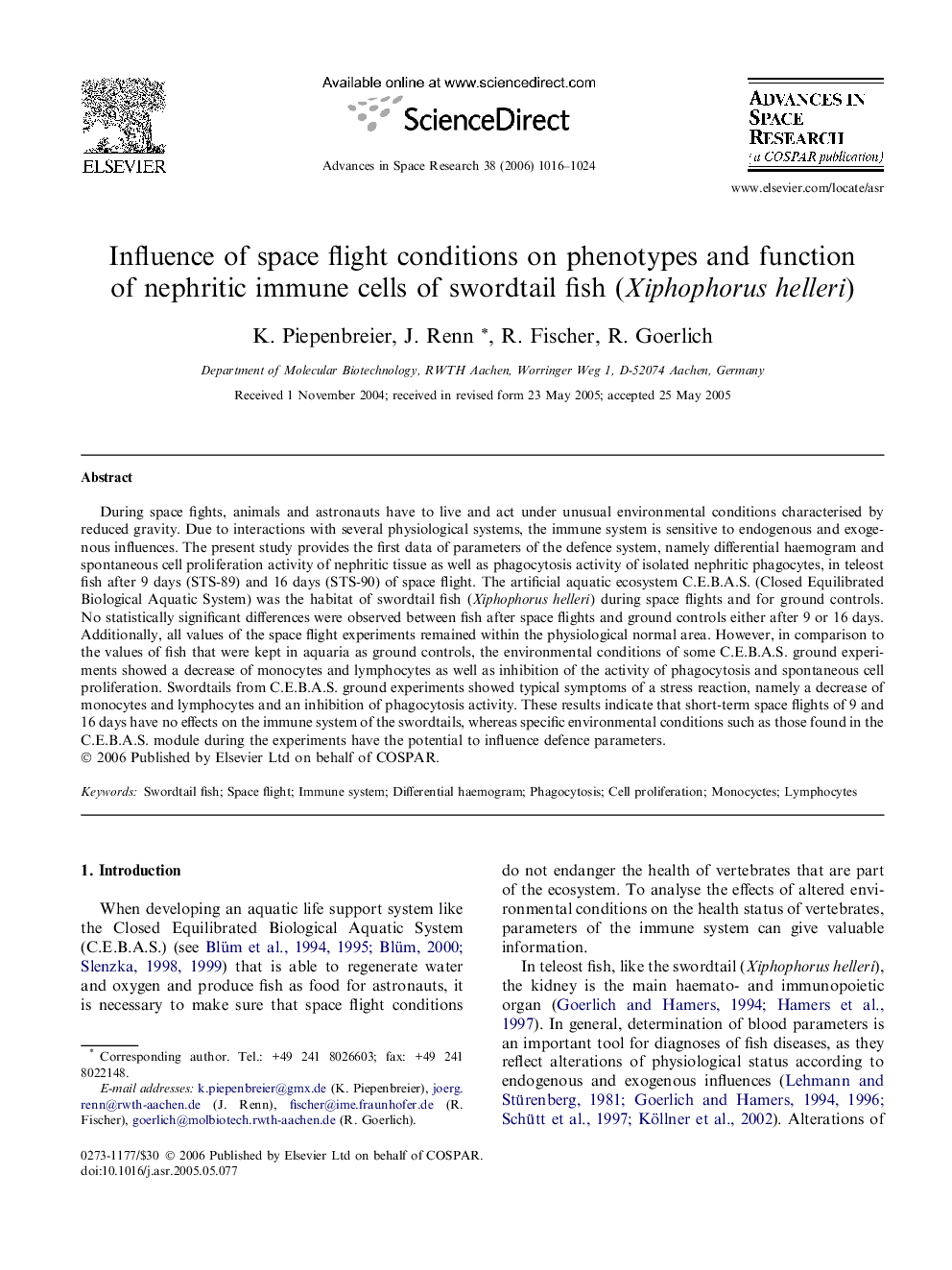| Article ID | Journal | Published Year | Pages | File Type |
|---|---|---|---|---|
| 1769345 | Advances in Space Research | 2006 | 9 Pages |
During space fights, animals and astronauts have to live and act under unusual environmental conditions characterised by reduced gravity. Due to interactions with several physiological systems, the immune system is sensitive to endogenous and exogenous influences. The present study provides the first data of parameters of the defence system, namely differential haemogram and spontaneous cell proliferation activity of nephritic tissue as well as phagocytosis activity of isolated nephritic phagocytes, in teleost fish after 9 days (STS-89) and 16 days (STS-90) of space flight. The artificial aquatic ecosystem C.E.B.A.S. (Closed Equilibrated Biological Aquatic System) was the habitat of swordtail fish (Xiphophorus helleri) during space flights and for ground controls. No statistically significant differences were observed between fish after space flights and ground controls either after 9 or 16 days. Additionally, all values of the space flight experiments remained within the physiological normal area. However, in comparison to the values of fish that were kept in aquaria as ground controls, the environmental conditions of some C.E.B.A.S. ground experiments showed a decrease of monocytes and lymphocytes as well as inhibition of the activity of phagocytosis and spontaneous cell proliferation. Swordtails from C.E.B.A.S. ground experiments showed typical symptoms of a stress reaction, namely a decrease of monocytes and lymphocytes and an inhibition of phagocytosis activity. These results indicate that short-term space flights of 9 and 16 days have no effects on the immune system of the swordtails, whereas specific environmental conditions such as those found in the C.E.B.A.S. module during the experiments have the potential to influence defence parameters.
